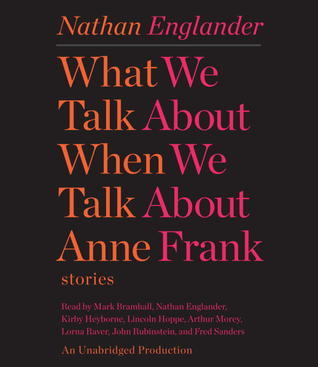What do you think?
Rate this book


7 pages, Audio CD
First published February 7, 2012
🩷 3.5 ⭐
🩷 The story and dialogue dragged on for quite a bit. However, the ending was unexpected and made up for the prolonged dialogue.
🧡 4 ⭐
🧡 I wish the author had left the ending ambiguous. It would have been more meaningful for me, and something I would ponder for years to come.
🩷 3.5 ⭐
🩷 The short story was just a continuance performance of masculinity through continuous violence.
🩷 “When Israeli army recruits complete basic training, they climb up that mountain and scream out into the echo ‘A second time Masada won’t fall.’ ”
🧡 3 ⭐
🧡 I am sure there is a more feminist, queer interpretation of this ending, but I do not currently have the willpower to analyze it on that level. Overall, I was not a fan. The story did not seem to go anywhere and had no deeper meaning or revelation.
🩷 4 ⭐
🩷 I listened to this as an audiobook. I appreciated the listing as an audiobook, but am not sure if I would have appreciated this repetitive listing if I was reading the short story.
🧡 3.5 ⭐
🧡 Josh seemed too immature and quick to violence to be a camp director. While I appreciate the philosophical idea, I found Josh’s reactionary actions too unrealistic and annoying to give this short story four stars.
🧡 “ ‘We have decided one thing. You decide the rest. You can make it go away if you want, same as with the rabbi. Like Himmelman disappears, dirty fondler, without a trace. That crime your board can swallow? Then let them swallow this – justice served. A ravage avenged. Put this on your list of crimes.’ ”
🩷 3 ⭐
🩷 I thought it might have a deeper meaning or a happier ending.
🧡 4 ⭐
🧡 A nice philosophical thought experiment.